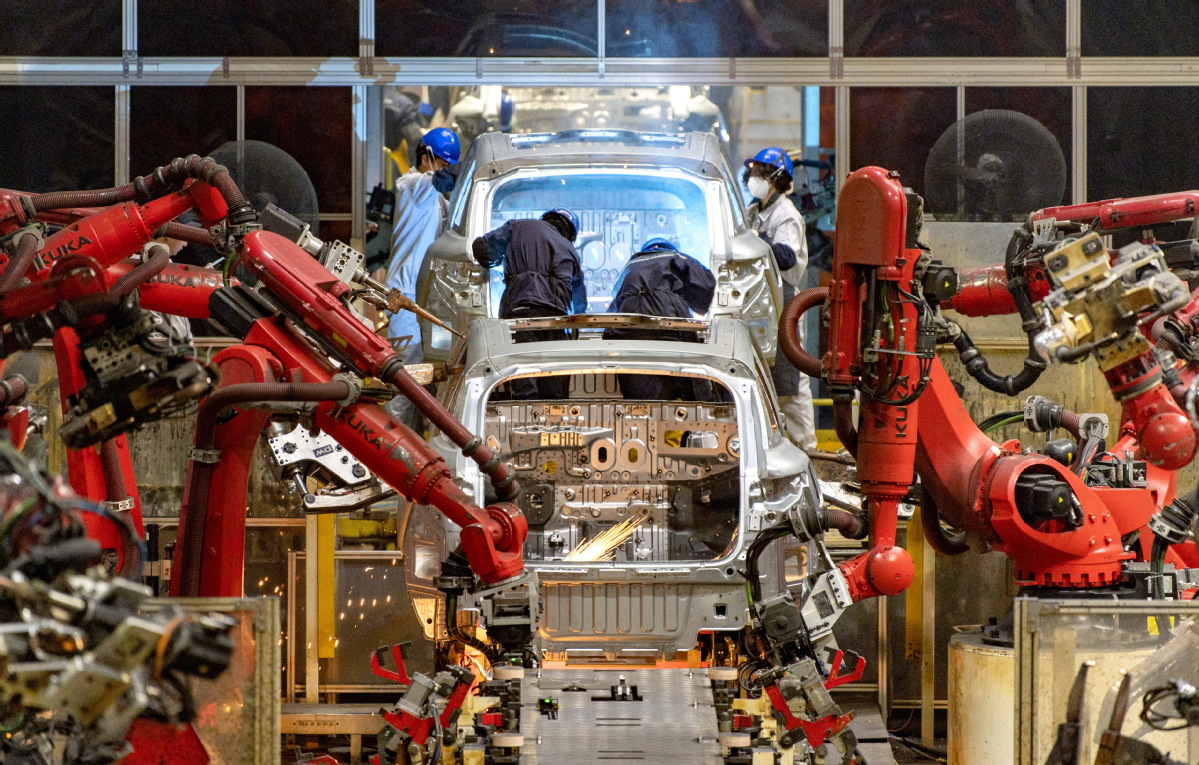Rise of local NEVs helps global tool makers

The growing overseas footprint of Chinese companies that make new energy vehicles and auto parts is offering substantial opportunities for global machine tool makers, said a corporate executive.
Chinese NEV makers' rise mirrors the growth patterns in other economies. Their international presence also addresses rising demand from foreign automakers seeking improved supply chain security amid deglobalization and geopolitical tensions, said Norbert Wiest, general manager of SW China, a Suzhou, Jiangsu province-based multinational corporation specializing in machine tools.
The remarks follow recent claims by some Western politicians and media outlets that China is allegedly creating excess capacity in the new energy sector and distorting market dynamics abroad by dumping products at low prices, thus damaging other economies.
"In industrial history, every rapidly growing and significant economy has gone global," Wiest said. "Japan expanded globally when its automotive industry was growing. Despite initial challenges, Japan succeeded in its second attempt due to improved performance, technology and cost reduction through mass production, similar to China's experience. German OEMs (original equipment manufacturers) were also very successful in exporting parts to China."
"It is logical for China's car industry to go global, especially in the electric car market where China has an advantage in technology, production capability and costs."
Wiest noted that Chinese NEV and auto part makers' price advantage stem from technological advancements and large-scale production. He highlighted that long-term market strategies and good services are also important reasons behind the overseas success.
"Many of SW's customers in China are tier 1 suppliers directly serving OEMs. Their main reasons for overseas expansion include following global customers such as Tesla in Europe and North America. These innovative enterprises also contributed to the global technical development in the field of electric cars and benefited companies involved in the supply chain," Wiest said.
SW's Hungary branch saw its business boom in the last two years, largely due to orders from Chinese auto part maker establishing production bases there. Halms Hungary KFT, the overseas branch of Zhejiang Huashuo Technology Co Ltd, as well as Nanjing Chervon-Auto Precision Technology Co Ltd, are key clients.
On reasons behind Halms' overseas venture, Zhang Taixin, its director, said that in the current climate of deglobalization and geopolitical conflicts, automakers prioritize supply chain security over cost cuts. This shift favors suppliers capable of producing auto parts near automakers' production sites to ensure timely delivery despite geopolitical uncertainties.
Shi Jiaqi, director of overseas projects at Chervon-Auto, echoed this sentiment. "We've noticed strong demand from our foreign clients who favor suppliers capable of auto part production near their sites to avoid instability from deglobalization and geopolitical conflicts, which is also an important reason for us to set up overseas branches."
The Shanghai-listed automotive component maker invested around 60 million euros ($64.77 million) in 2021, and finished factory construction in 2023.
Stefan Weber, chief technology officer of SW Germany, said the company is stepping up efforts to support Chinese vehicle and auto part brands to go overseas by expanding its presence in Hungary and Mexico to better serve its Chinese clients.
"It's a win-win cooperation. Our customer base grew significantly with big demand for machines and our business with Chinese clients saw impressive growth."
liuyukun@chinadaily.com.cn

